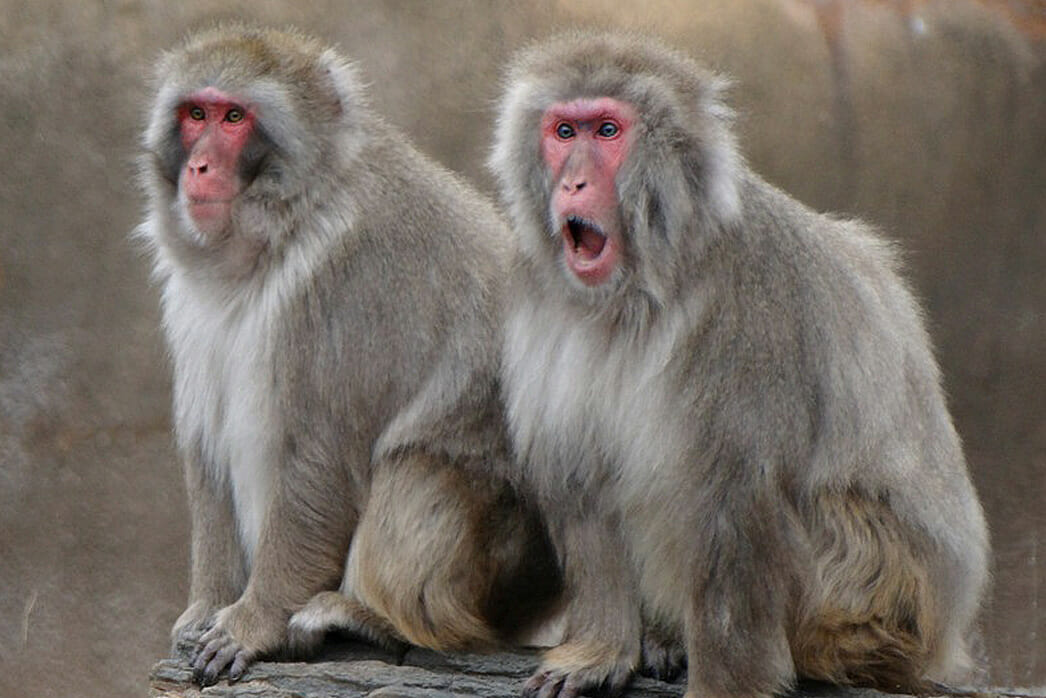Japanese macaque
Macaca fuscata fuscata
At the Detroit Zoo
The Detroit Zoo is home to a family of 11 macaques, the youngest of whom is Kota, born in 2022. The social structure of these mammals is matriarchal and based on lineage.
The Japanese macaques, also known as snow monkeys, can often be seen basking in the warm steam from their hot tub and entertaining guests with their playful antics in their habitat next to the lions.
Description
Japanese macaques have stout bodies, strong limbs and short tails. Their coats have long, dense fur that varies in color from brown to gray. Adults have exposed red skin on their faces and posterior.
Fun Facts
-
Japanese macaques are thought to demonstrate culture, or learned behaviors, by passing on knowledge through a troop and potentially through generations.
-
Japanese macaques can be seen sitting in naturally occurring hot springs to avoid extreme winter conditions.






